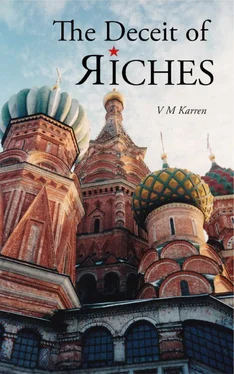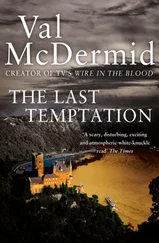Arkadiy was an interesting character; A former Soviet air force intelligence officer who spoke and wrote English like no other Russian I had ever met, yet so subservient to Valentina Petrovna. He must have been stationed abroad in a Soviet embassy in an English speaking country. Was this the fate of ex-Soviet military officers: to be clerks in the newly organized foreign students’ offices around Russia? Whatever his story, he was my witness.
With my tuition paid, that morning I was introduced to the heads of the two departments in which I would be studying: Dean Roman Sergeyevich Karamzin, the head of the History Faculty, and Professor Lyudmila Ivanovna Dashkova of the School of Pedagogy.
Professor Dashkova, a plump middle-aged woman with thick curly black hair was a warm and encouraging mentor who corrected mistakes without chiding. Self-correction of grammar, mis-annunciation or an incorrect stress on a changing adjectival form would be congratulated with a warm smile from her round, rosy cheeks. She was a doting mother over her students, who absolutely loved reading and teaching the Russian classics — Pushkin, in particular, was her specialty and she evangelized the world with the virtues of his tales and poetry. For her, there was only one version of the Russian lexicon that was acceptable, and that was Pushkin’s! Street slang and foreign cognates were to her as abhorrent as margarine to a French pastry chef. Only the best ingredients went into our essays.
In our initial meeting, Professor Dashkova spoke only Russian with me and asked open questions to make me speak and explain myself.
“Young man, please tell me what motivated you to study Russian and Russian literature,” Lyudmila began.
“Well, I think it all started because I was afraid of war between our countries,” my reply started the professor.
“So you are here to study the language of the enemy?” she asked suspiciously.
“No, just the opposite,” I gave a startled return to her accusation, “so that we don’t remain enemies!”
“Oh, yes, I understand,” she seemed relieved yet a bit ruffled.
“I started teaching myself how to read the Russian alphabet when I was sixteen years old, and for several years taught myself vocabulary and phrases and started trying to read lexicons — but that was too advanced for me to do on my own. Once I reached university level and could take proper courses from a Russian born professor I really started to love this language. I find it very expressive. I wish English had so many adjectives.”
“Have you done much reading in the classics in your study?” she inquired.
“Sorry, I only know the stereotypical Russian authors. Tolstoy, Dostoyevsky & Pushkin. I can understand Tolstoy’s writing if I really concentrate, but then I have to read a paragraph twice. I can’t follow Dostoyevskiy in English or Russian, but I love Pushkin’s short stories! They are so Russian and timeless. I feel I understand Russia so much better through Pushkin,” I expounded.
“I too love Pushkin very much. I feel he was the true Russian writer who not only observed Russia, like Tolstoy but who accurately interpreted Russia and Russians. Tolstoy was too caught up in Russia’s relation to and with France and other European countries. Pushkin was focused fully on Russian matters. He was the original Russian writer,” she said with a sparkle in her eyes.
“I look forward to reading more of his works. I only know a very few,” I admitted.
“And so we shall, and so we shall,” Ludmilla confirmed.
“Your Russian skills seem to be excellent. Both your grammar is very careful and accurate, your accent is very good, and your vocabulary seems to have good depth. But I notice you do not use idioms and expressions. You speak very literally.” Her analysis intrigued me.
“You don’t think or dream in Russian yet, do you?” she inquired.
“No, not yet,” I conceded.
“Well, if we put your nose into Pushkin a few hours every day, we can change that,” she smiled and made some notes in her notebook. “The more you read Pushkin, the more you will speak and write like Pushkin. So we will focus heavily on reading the classics and essay writing. Your conversation skills are excellent, you don’t seem to miss many details. Much of this work will be self-study so you will have to motivate and discipline yourself. Try to speak with people of all different kinds while you’re here. Old people speak differently than students. Lawyers speak differently than a worker from one of the automobile factories. You will do well to speak more than listen to lectures.” She rattled these instructions off like a pharmacist giving instructions for the careful use of dispensed medicines. “And in April we will do a pre-test for the entrance exams to the Moscow State University, the MGU, and in June I expect that you will pass that proficiency exam. When you do that you will be eligible to study in Moscow if you wish,” she explained with proxy excitement.
Dean Karamzin was a man larger than life! A life loving Russian academic with a head of thick dark hair and endless historical facts, dates, and allusions to historical events. His booming voice from his barrel chest could be heard through the entire lecture hall without a microphone. This was the case when speaking to sheepish students in history lectures or with a hall filled with arguing intellectuals. The Dean was in a very good mood when I met him for the first time in his office on Minin Square.
“It is exciting to have a foreign student come to earn a Master’s degree in history and not to study just poems and grammar!” the Dean seemed to frown on the touchy feely disciplines and expressed his preference for dates and facts.
“Thank you, sir. It is surely a unique chance for me as well to be here, learning first hand instead of just reading other people’s research from the other side of the ocean,” I remarked.
“Indeed, indeed! So, what part of Russia’s history interests you. Do you have a proposal for a thesis yet?” he asked with what seemed to be a tinge of glee.
“Well, the current events are what truly interests me. As you know history is being rewritten from the Soviet version to Russian version right now and I wouldn’t know what is acceptable or even real to research. Current events seem to be the only thing a student can see is really true.”
“You speak the truth about our bad habit of changing our histories to suit our politics, but remember that nothing in Russia is ever as it looks on the surface, even what you read tomorrow in the newspaper. You will need to research for yourself to get to the truth.” He warned me with a chiding voice.
“Yes sir, even in the USA nothing is really as it seems. There is always a hidden agenda in everything a politician does and says. I learned that after four years of studying my country’s politics and policies,” I commented with some exasperation.
“Ah Yes! This is a new discipline here at our university and we’re just starting to publish papers and journals with the study of the current political happenings. In the Soviet Union, we didn’t have politics, we had only policy. With a one-party system, all politics were party politics and writing about that only got journalists arrested and sent to Siberia.”
Dean Karamzin’s face then lit up and his tone changed from resignation to excitement. “With your academic experience would you like to sponsor an article in our political journal at the end of the spring term? That would really set you apart academically to publish articles before you write and defend your thesis,” the Dean suggested, already wound up with the prospect of making his journal an international collaboration.
“I think it would be a great challenge. Who do I need to speak with?” I asked in my own excitement.
Читать дальше












